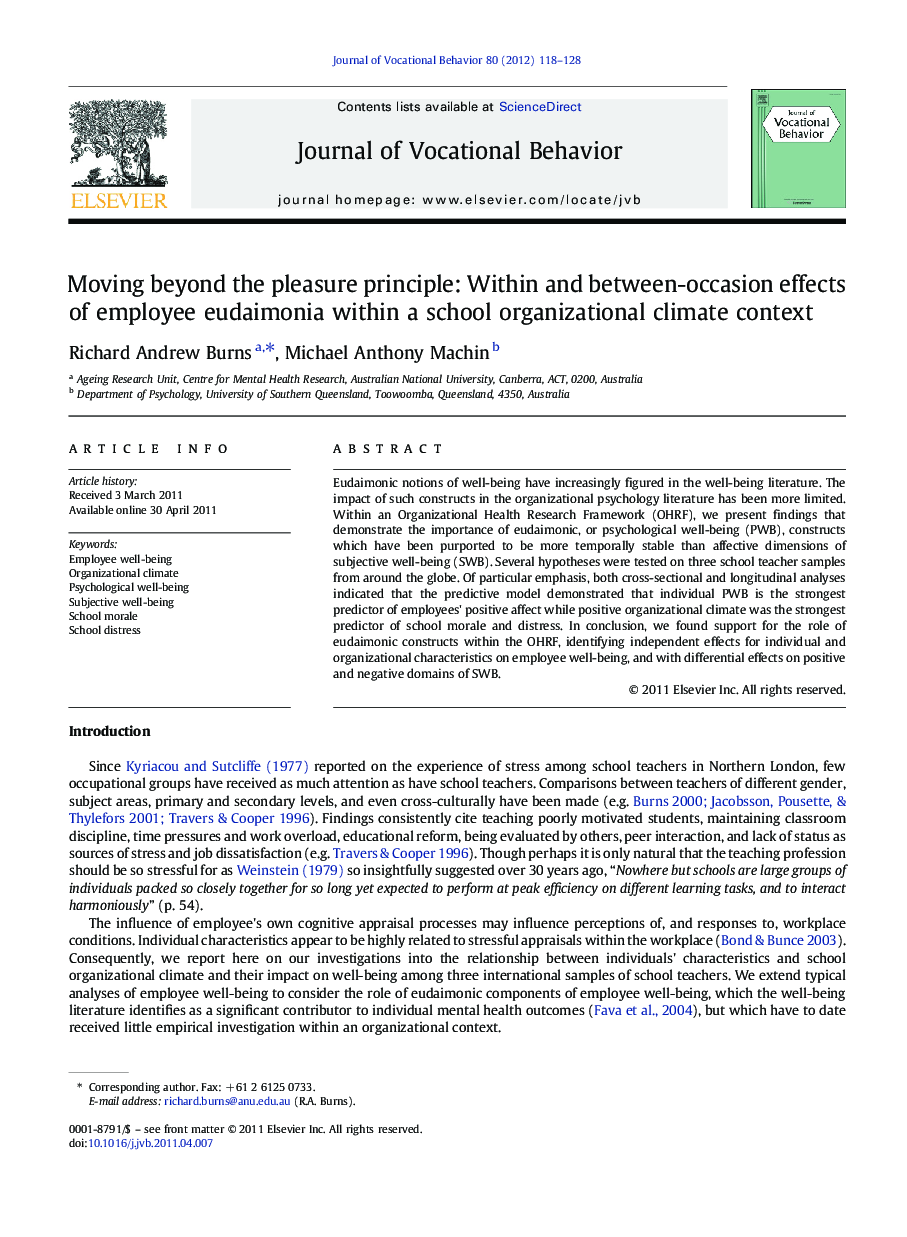| کد مقاله | کد نشریه | سال انتشار | مقاله انگلیسی | نسخه تمام متن |
|---|---|---|---|---|
| 887110 | 913162 | 2012 | 11 صفحه PDF | دانلود رایگان |

Eudaimonic notions of well-being have increasingly figured in the well-being literature. The impact of such constructs in the organizational psychology literature has been more limited. Within an Organizational Health Research Framework (OHRF), we present findings that demonstrate the importance of eudaimonic, or psychological well-being (PWB), constructs which have been purported to be more temporally stable than affective dimensions of subjective well-being (SWB). Several hypotheses were tested on three school teacher samples from around the globe. Of particular emphasis, both cross-sectional and longitudinal analyses indicated that the predictive model demonstrated that individual PWB is the strongest predictor of employees' positive affect while positive organizational climate was the strongest predictor of school morale and distress. In conclusion, we found support for the role of eudaimonic constructs within the OHRF, identifying independent effects for individual and organizational characteristics on employee well-being, and with differential effects on positive and negative domains of SWB.
► Eudaimonia is the strongest predictor of employee positive affect over time.
► Personality is the strongest predictor of employee negative affect over time.
► Positive organizational climate is a stronger predictor of morale and distress.
► There are differential predictors of positive and negative well-being outcomes.
Journal: Journal of Vocational Behavior - Volume 80, Issue 1, February 2012, Pages 118–128